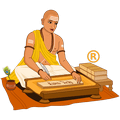 Drik Panchang
Drik Panchang



 Drik Panchang
Drik Panchang



Sunrise05:58 AM
Sunset05:18 PM
Moonrise03:52 AM, Oct 16
Moonset03:36 PM
Shaka Samvat1874 Nandana
Vikram Samvat2009 Vishvavasu
Gujarati Samvat2008 Shobhakrit
Amanta MonthAshwina
Purnimanta MonthKartika
WeekdayBudhawara
PakshaKrishna Paksha
TithiDwadashi upto 10:45 AM
NakshatraPurva Phalguni upto 05:46 PM
YogaShukla upto 06:31 AM
KaranaTaitila upto 10:45 AM
KaranaGaraja upto 11:44 PM
Pravishte/Gate31
MoonsignSimha upto 12:22 AM, Oct 16
Rahu Kalam11:38 AM to 01:03 PM
Gulikai Kalam10:13 AM to 11:38 AM
Yamaganda07:23 AM to 08:48 AM
AbhijitNone
Dur Muhurtam11:15 AM to 12:01 PM
Amrit Kalam10:38 AM to 12:25 PM
Varjyam01:38 AM, Oct 16 to 03:23 AM, Oct 16
Notes: All timings are represented in 12-hour notation in local time of Lancaster, United States with DST adjustment (if applicable).
Hours which are past midnight are suffixed with next day date. In Panchang day starts and ends with sunrise.


 Kumbha 24:32+
Kumbha 24:32+ Shatabhisha 08:19
Shatabhisha 08:19

 Meena
Meena P Bhadrapada 05:56
P Bhadrapada 05:56

 Mesha
Mesha Ashwini 24:10+
Ashwini 24:10+

 Mesha 29:07+
Mesha 29:07+ Bharani 23:15
Bharani 23:15

 Vrishabha
Vrishabha Rohini 23:37
Rohini 23:37

 Vrishabha 12:13
Vrishabha 12:13 Mrigashira 25:01+
Mrigashira 25:01+

 Karka
Karka Pushya
Pushya

 Karka
Karka Pushya 08:53
Pushya 08:53

 Karka 12:02
Karka 12:02 Ashlesha 12:02
Ashlesha 12:02

 Vrishchika
Vrishchika Anuradha 23:54
Anuradha 23:54

 Vrishchika 23:32
Vrishchika 23:32 Jyeshtha 23:32
Jyeshtha 23:32

 Makara
Makara U Ashadha 20:57
U Ashadha 20:57

 Meena
Meena U Bhadrapada 13:04
U Bhadrapada 13:04

 Meena 11:28
Meena 11:28 Revati 11:28
Revati 11:28In Hindu Calendar, the day starts with local sunrise and ends with next day local sunrise. As sunrise time is different for all cities, Hindu Calendar made for one city is not valid for any other city. Hence it is important to use location based Hindu Calendar, like this website. Further, each Hindu day consists of five elements, which are called angas. These five elements are -
In Hindu Calendar, all five elements together are called Panchang. (In Sanskrit: Panchang = Pancha (five) + Ang (part)). Hence Hindu Calendar which shows all five elements for each day is called Panchang. In South India Panchang is known as Panchangam.
When Hindu Calendar includes Muslims, Sikh, Christian, Buddhist and Jain festivals, including national holidays, it is called as Indian Calendar.